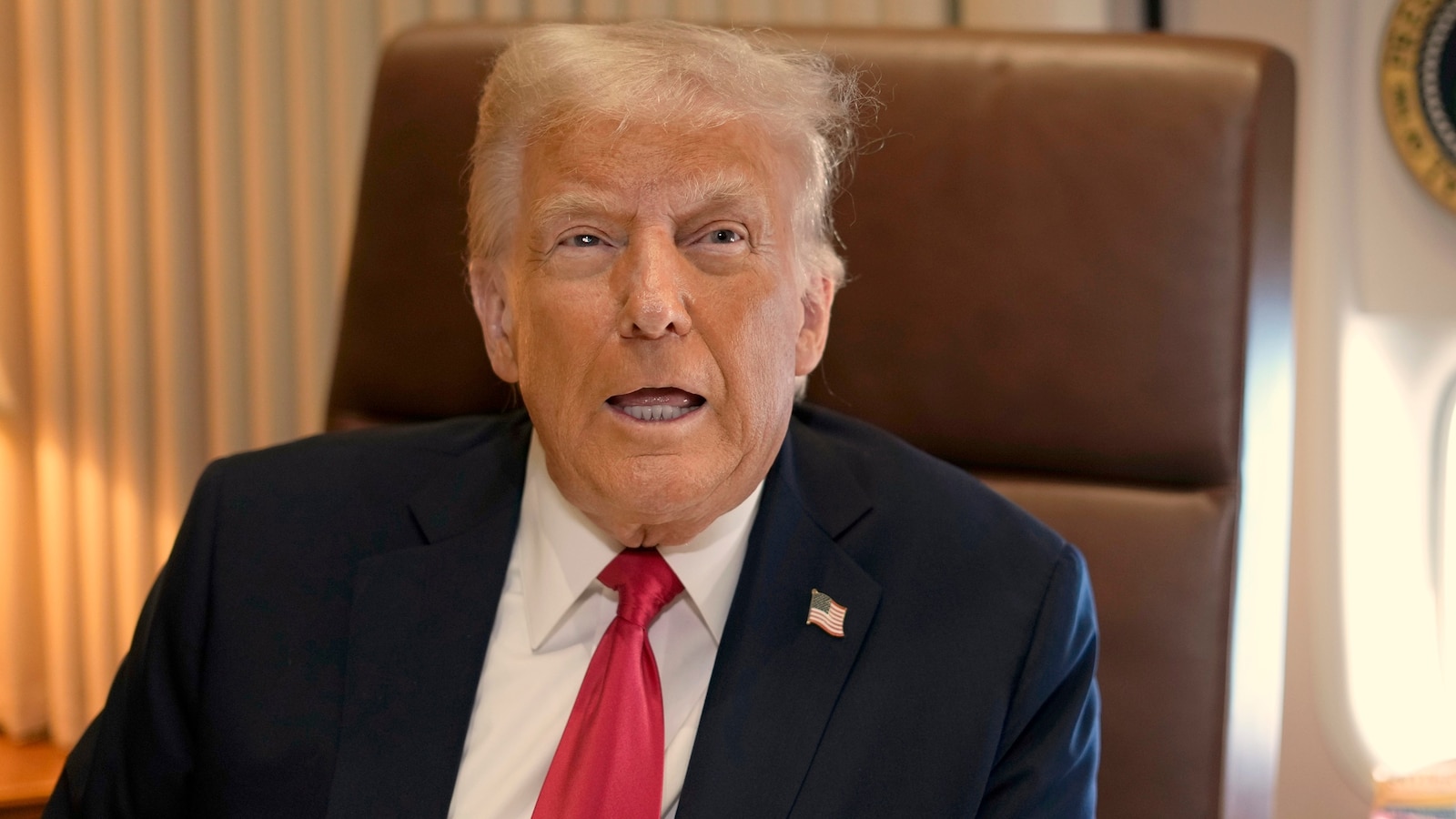The Trump administration is gearing up for potentially contentious meetings with Arab power players this week as President Donald Trump continues to press his plan for what he calls U.S. “ownership” of Gaza, going so far as to threaten cutting off U.S. aid to Jordan and Egypt if they don’t go along.
On Tuesday, Jordan’s King Abdullah is scheduled to meet with Trump at the White House, becoming the first Arab leader to do since he returned to power last month.
Jordan has served as a humanitarian lifeline for civilians in Gaza throughout the Israel-Hamas conflict and already hosts millions of registered Palestinian refugees.
But Trump’s plan for rebuilding Gaza calls for the country, as well as Egypt, to take in close to 2 million more Palestinians he says can be removed from Gaza so that the war-torn land can be transformed into what he calls “the Riviera of the Middle East” under his watch.
Trump’s proposal to “clean out” Gaza has ignited a sharp wave of backlash from Middle Eastern leaders, including from Abdullah.

King Abdullah II of Jordan represents Queen Elizabeth II as he attends the Sovereign’s Parade at the Royal Military Academy Sandhurst on Aug. 11, 2017 in Camberley, England.
Max Mumby/Indigo/Getty Images
“His Majesty King Abdullah II stresses the need to put a stop to (Israeli) settlement expansion, expressing rejection of any attempts to annex land and displace the Palestinians,” the Jordanian royal court said in a statement posted to X on Wednesday, in the wake of Trump’s stunning announcement last week.
In the days since, Abdullah has also engaged in a flurry of calls and meetings with the U.N. and other countries that have historically supported the creation of a Palestinian homeland — a possible effort to present a united front aimed at pushing back against Trump’s designs for Gaza.
But the opposition appears to have done little to deter Trump. In a clip from his weekend interview with Fox News released on Monday, Trump said that under his scheme, Palestinians removed from Gaza would not have the right to return to the land after reconstruction was completed.
“No, they wouldn’t, because they’re going to have much better housing, much better,” he said. “I’m talking about building a permanent place for them.”

President Donald Trump meets with Israel’s Prime Minister Benjamin Netanyahu in the Oval Office of the White House, Feb. 4, 2025, in Washington.
Elizabeth Frantz/Reuters
The president has also brushed off opposition from Jordan and Egypt to taking in large numbers of Palestinians, suggesting he would pressure their governments to get on board.
“If they don’t agree, I would conceivably withhold aid,” he told reporters Monday night.
Trump is also dispatching his top diplomat, Secretary of State Marco Rubio, to the Middle East at the end of this week.
Rubio is slated to visit Israel, the United Arab Emirates, Qatar and Saudi Arabia. He also met with the Egypt’s foreign minister at the State Department on Monday. However, it’s unclear whether he is on the same page as the president.
During his tour through Central America last week, Rubio was asked multiple times if Palestinians would be allowed to return to Gaza post-reconstruction under Trump’s plan; on each occasion, the secretary did not fully answer the question, but said Gazans would have to live somewhere else “in the interim.”

Secretary of State Marco Rubio meets with Egyptian Foreign Minister Badr Abdelatty during a photo opportunity ahead of a meeting in the U.S. State Department Building, Feb. 10, 2025, in Washington.
Anna Moneymaker/Getty Images
Asked how Rubio would resolve similar concerns raised by Arab leader’s during his tour through the Middle East, a senior State Department official replied “I don’t know what his plans are. I’m not a mind-reader.”
In a radio interview broadcast on Monday, the secretary said he would be the one putting questions to Middle Eastern officials –asking them how they aim to resolve the conflict.
“The only one who’s stood up and said I’m willing to help do it is Donald Trump. All these other leaders, they’re going to have to step up. If they’ve got a better idea, then now is the time,” Rubio said.
However, the foreign ministers from the Arab countries Rubio will visit already sent a letter to him earlier this month detailing their willingness to work with the Trump administration on a two-state solution, which the secretary has all but dismissed.
Some analysts have characterized Trump’s proposal for Gaza as a negotiating ploy. If that’s the case, Ahmed Aboudouh, an associate fellow at Chatham House’s Middle East and North Africa Programme, argues it has already done more harm than good.
“If Trump’s eye-popping intervention was a bargaining tactic, as some searching for logic in the proposal claim, it has already failed. Enormous damage has been done to the fragile peace process and US prestige,” Aboudouh said.
Others, like Thomas S. Warrick — a nonresident senior fellow at the Scowcroft Middle East Security Initiative and former Department of Homeland Security official — see some value in Trump’s proposal.
“No one predicted that Trump would push the United States to engage more on what postwar Gaza should look like in one month than the Biden team did in fifteen months,” Warrick said.
However, Warrick said Trump’s strategy “will need to be dialed back to what is workable,” and that he’s likely to come face to face with one tall hurdle when he meets with Abdullah: Jordan’s unwillingness to accept Palestinian refugees from Gaza.
“There is quite literally no tool in the US toolbox that could persuade the leaders of Egypt or Jordan to change their minds on this point,” he said. “Trump’s advisors know this, but they would likely rather have Trump hear this directly from Jordanian King Abdullah.”

